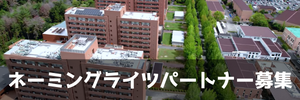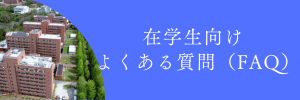(English announcement can be found in the latter half of this notice.)
広島大学バイオマスプロジェクト研究センターと中国地域バイオマス利用研究会の共催で広島大学バイオマスイブニングセミナーを開催しています。バイオマスに関する基本的な考え方から最先端の情報までをカバーして、この地域におけるバイオマスの活動に資することを目的とするものです。第73回を以下の日程で開催しますので、ご参集下さい。
日時
2019年3月7日(木)16:20~17:50
会場
広島大学東広島キャンパス工学部110講義室
広島大学 東広島キャンパス
https://www.hiroshima-u.ac.jp/en/access/higashihiroshimacampus
工学部 建物配置図
www.hiroshima-u.ac.jp/eng/access/building
工学部 講義室配置図
www.hiroshima-u.ac.jp/eng/access/lectureroom
プログラム
講演:広島大学大学院工学研究科 M1 藤原 芳樹
「微細藻類の水熱炭化によるバイオチャーの生成」
水熱炭化は高圧の水中でバイオマスを加熱し、チャー生成物を得る処理方法です。本実験では、微細藻類を水熱炭化する際、水にエタノールを加え実験を行いました。エタノールは水より沸点が低いため、水と混合した際に、バイオチャーが生成される亜臨界域が水だけのものと比較するとより低温に移動することが予想されます。しかしながら、エタノールを加えることによって反応性の低下も考えられます。そのため、本実験では、水熱炭化中のエタノール混合割合を変化させ、チャーへの影響を確認しました。
講演:広島大学大学院工学研究科 D3 Pattraporn CHANGSUWAN
「超臨界水中におけるグアヤコールの転換に及ぼす 反応器壁触媒の効果」
本研究では、超臨界条件下でのリグニンのモデル化合物としてのグアヤコールの生成物分布に及ぼす金属壁触媒の影響を調べました。 これを実証するために、グアヤコールのガス化のための触媒として作用する、Fe、Niおよび種々の金属を含有するステンレス鋼316反応器を使用しました。 実験は、600℃、25MPaで連続流反応器中で行い、反応器の異なる内径(2.17、4.35および9.40mm)を用いて滞留時間を90秒に固定しました。 結果は、TOC、固体、およびガスの炭素収率が反応器の内径によって影響されないことを示しました。
【講習会】 ≪システム≫
講演:広島大学大学院工学研究科 教授 松村 幸彦
エネルギー資源の枯渇と地球温暖化が問題視されている中、太陽エネルギーを使って生物が作り出すバイオマス資源は、再生可能で炭素中立なエネルギーとして風力・太陽光などの自然エネルギーとともに注目されています。その利用に当たっては、資源・変換・システムの3つの観点からの議論が求められています。今回は、システムの観点でバイオマスを議論するときに求められる考え方をエネルギー、環境、経済を中心にお話しします。
司会・解説:広島大学大学院工学研究科 教授 松村 幸彦
なお、18:00より意見交換会(参加費 800円)を開催します。ご都合の付く方はこちらにもご参加下さい。
The 73rd Hiroshima University Biomass Evening Seminar
(The 49th Hiroshima University ACE Seminar)
Biomass Project Research Center, Hiroshima University, and HOSTY Association are co-organizing the Hiroshima University Biomass Evening Seminar. This seminar covers topics from the fundamentals of biomass to the latest information so that it can contribute the activities on biomass in this district. The 73rd seminar will be held as follows. Please join.
Date & Time
Thu.7 Mar., 2019 16:20-17:50
Place
Engineering 110 Lecture Room, Higashi-Hiroshima Campus, Hiroshima University
Higashi Hiroshima Campus, Hiroshima University
https://www.hiroshima-u.ac.jp/en/access/higashihiroshimacampus
School of Engineering Buildiing map
https://www.hiroshima-u.ac.jp/en/access/higashihiroshimacampus/aca_7
School of Engineering Lecture room map
www.hiroshima-u.ac.jp/eng/access/lectureroom
Program
Lecture: Yoshiki FUJIWARA
M1 Graduate School of Engineering, Hiroshima University
“Production of Biochar by Hydrothermal Carbonization of Microalgae”
Hydrothermal carbonization is a treatment method for heating a biomass in high pressure water to obtain a char product. In this study, hydrothermal carbonization of microalgae was carried out using ethanol and water. Ethanol boiling point is lower than that of water. So, it was expected that when mixed with water, the critical point moved to a lower temperature as compared with water alone. However, addition of ethanol is also considered to reduce reactivity. Therefore, in this experiment, the mixing ratio of ethanol during hydrothermal carbonization was changed, and the influence on char was confirmed.
Lecture: Pattraporn CHANGSUWAN
D3 Graduate School of Engineering, Hiroshima University
“Effect of the metal wall catalyst of reactor on a conversion of guaiacol in supercritical water”
In this study, the effect of the metal wall catalyst on product distribution of guaiacol as a model compound of lignin under supercritical condition was investigated. To demonstrate this, a stainless steel 316 reactor containing Fe, Ni and various metals, which acts as the catalyst for gasification of guaiacol, was employed. The experiments were performed in a continuous flow reactor at 600℃, 25 MPa and fixed the residence time at 90 s with different internal diameters of the reactor (2.17, 4.35 and 9.40 mm). The results indicated that the carbon yields of TOC, solid, and gas was not affected by the internal diameter of the reactor.
[Biomass Lecture Series] “System”
Lecture: Yukihiko MATSUMURA
Professor, Graduate School of Engineering, Hiroshima University
Biomasss resources are attracting attention as renewable and carbon neutral energy together with natural energy such as solar and wind because of energy depletion and global warming. To utilize biomass, discussion from three aspects, resource, conversion, and system is wanted. This time, concept required for biomass use from the viewpoint of system is introduced mainly in terms of energy, environment, and economy.
Chair & Commentary: Yukihiko MATSUMURA
Professor, Graduate School of Engineering, Hiroshima University
We will hold the discussion meeting from 18:00 (800 JPY needed). Join this meeting too, if you are available.


 Home
Home




